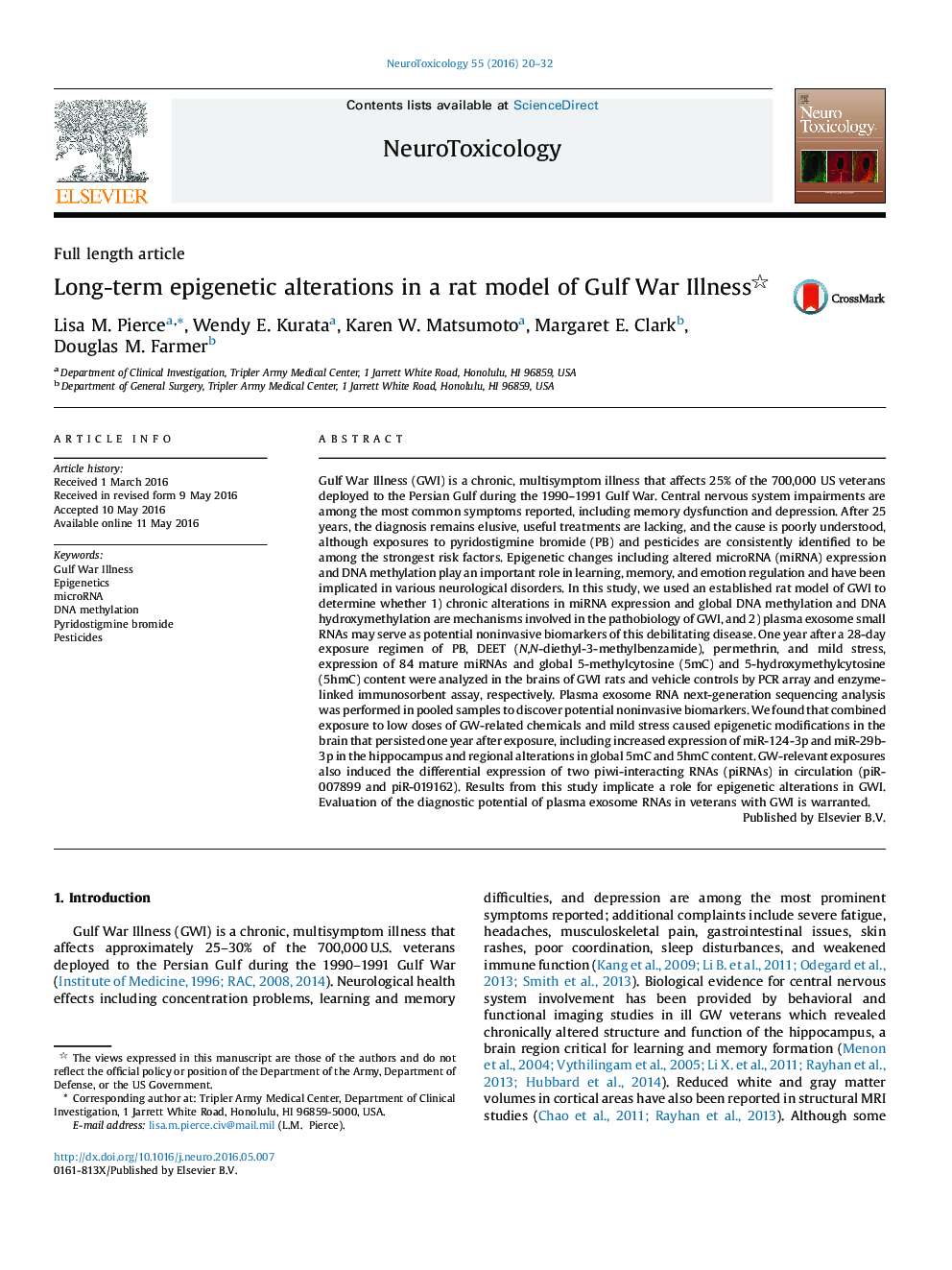| کد مقاله | کد نشریه | سال انتشار | مقاله انگلیسی | نسخه تمام متن |
|---|---|---|---|---|
| 2589439 | 1562039 | 2016 | 13 صفحه PDF | دانلود رایگان |

• Pyridostigmine, DEET, and permethrin caused persistent changes in hippocampal miRNAs.
• Global DNA methylation and DNA hydroxymethylation content in the brain was altered.
• These changes were not associated with neuroinflammation in this rat model of GWI.
• Circulating piRNAs may serve as potential noninvasive biomarkers of GWI.
• These findings implicate a role for epigenetic changes in the pathogenesis of GWI.
Gulf War Illness (GWI) is a chronic, multisymptom illness that affects 25% of the 700,000 US veterans deployed to the Persian Gulf during the 1990–1991 Gulf War. Central nervous system impairments are among the most common symptoms reported, including memory dysfunction and depression. After 25 years, the diagnosis remains elusive, useful treatments are lacking, and the cause is poorly understood, although exposures to pyridostigmine bromide (PB) and pesticides are consistently identified to be among the strongest risk factors. Epigenetic changes including altered microRNA (miRNA) expression and DNA methylation play an important role in learning, memory, and emotion regulation and have been implicated in various neurological disorders. In this study, we used an established rat model of GWI to determine whether 1) chronic alterations in miRNA expression and global DNA methylation and DNA hydroxymethylation are mechanisms involved in the pathobiology of GWI, and 2) plasma exosome small RNAs may serve as potential noninvasive biomarkers of this debilitating disease. One year after a 28-day exposure regimen of PB, DEET (N,N-diethyl-3-methylbenzamide), permethrin, and mild stress, expression of 84 mature miRNAs and global 5-methylcytosine (5mC) and 5-hydroxymethylcytosine (5hmC) content were analyzed in the brains of GWI rats and vehicle controls by PCR array and enzyme-linked immunosorbent assay, respectively. Plasma exosome RNA next-generation sequencing analysis was performed in pooled samples to discover potential noninvasive biomarkers. We found that combined exposure to low doses of GW-related chemicals and mild stress caused epigenetic modifications in the brain that persisted one year after exposure, including increased expression of miR-124-3p and miR-29b-3p in the hippocampus and regional alterations in global 5mC and 5hmC content. GW-relevant exposures also induced the differential expression of two piwi-interacting RNAs (piRNAs) in circulation (piR-007899 and piR-019162). Results from this study implicate a role for epigenetic alterations in GWI. Evaluation of the diagnostic potential of plasma exosome RNAs in veterans with GWI is warranted.
Journal: NeuroToxicology - Volume 55, July 2016, Pages 20–32